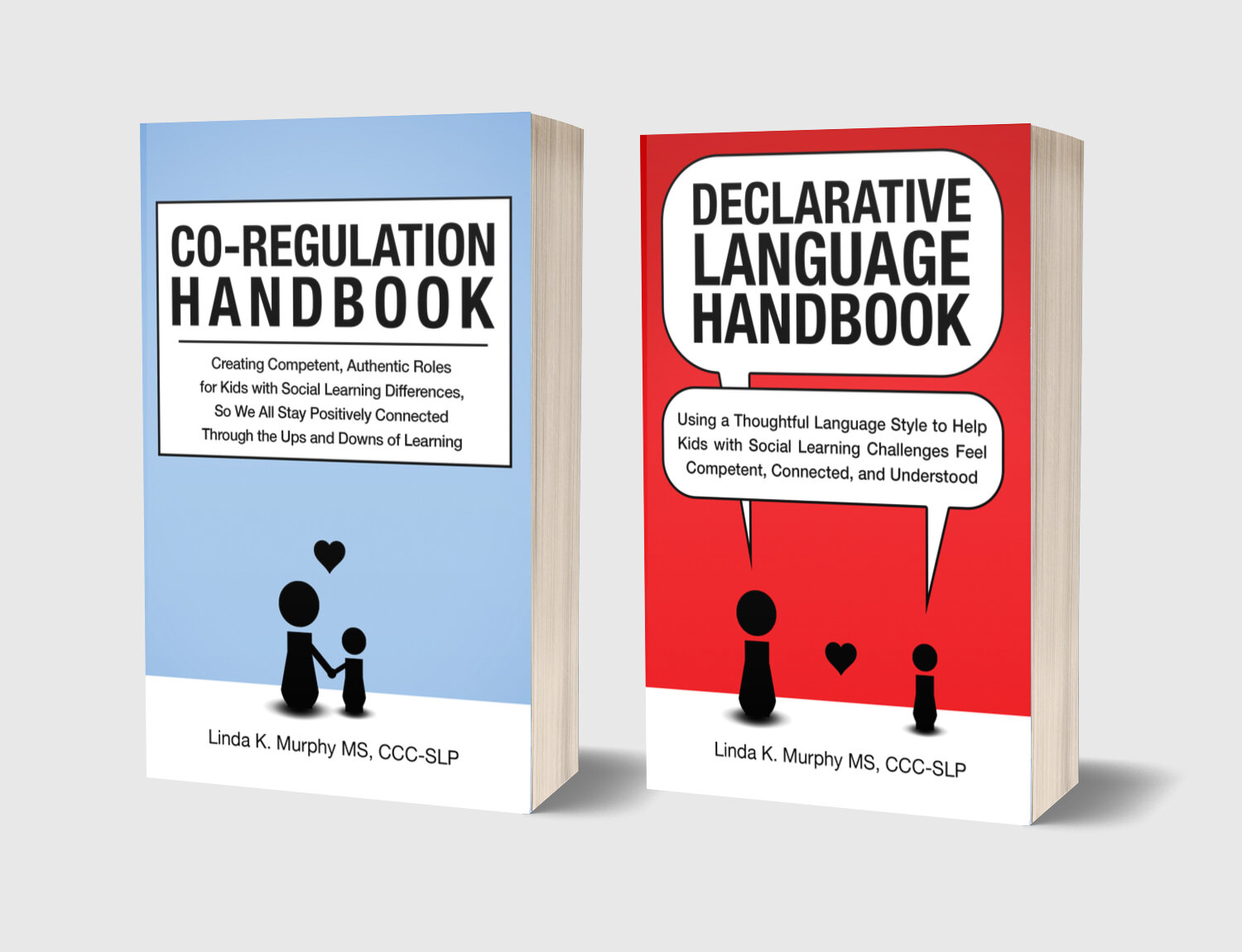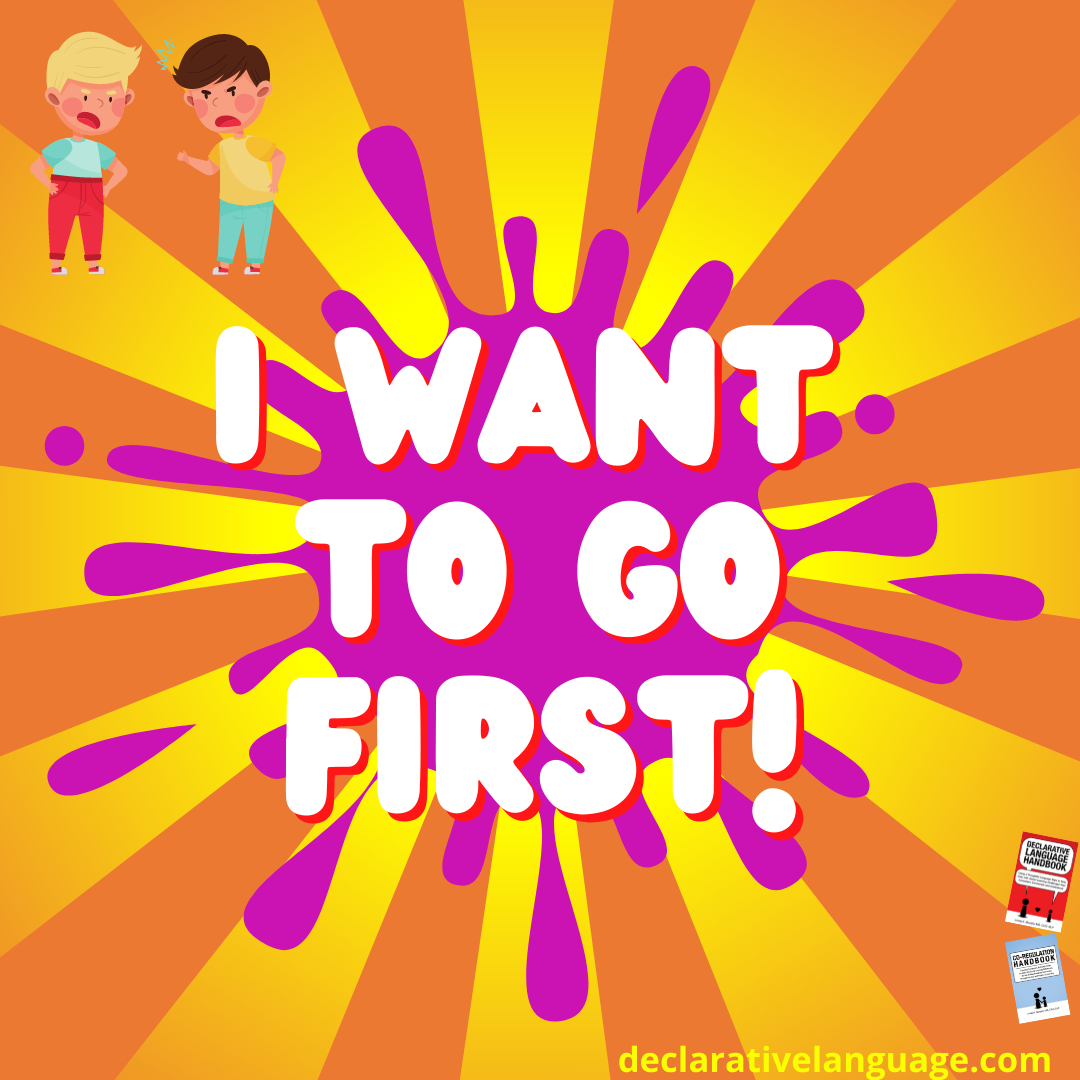I Want to Go First!
I recently received this question from a fellow SLP and thought it might be helpful to others because I know this situation is common. Thank you to Carla for asking me!
—-
I'm wondering if you can help me with a problem that took place between two of my students. They both wanted to go first in an activity. One child became dysregulated, yelled at his peer, walked away and then returned saying, "I don't know how to solve this problem!"
I wasn't sure how to help them come up with a solution they both would agree to. I thought of having them play rock paper scissors and deciding whoever doesn’t go first this time can go first next time. But both kids were adamant about going first and neither of them were budging!
I would appreciate to know how you would have handled this scenario.
--
This happens to all of us, right? We want kids to be flexible. We give them great options of how they could be fair or how to decide who should go first. And we hope at least one of the kids will be at a place where they acquiesce, for the greater good.
But sometimes, both kids are not ready to let go in that way. And we all get stuck as negative emotions escalate!
In these moments, I take a step back to think about where competence may lie, in combination with how I could adjust the complexity of the exchange (a topic I dedicate a chapter to in Co-Regulation Handbook). This just means, when we are stuck for some reason, it is because the kids are not yet competent in the skill I am asking of them. So, I as the guide, need to modify an element (or elements) in the moment to create competence, and then build the skills we are working towards, from there.
One element that makes an interaction more complex is decision-making. Sometimes we want to transfer the opportunity to make decisions to the child because this will empower them and help them grow in new ways.
But sometimes, as in this instance, the kids are not yet ready for that responsibility. So, I need to hold onto it, and then use my declarative language to thoughtfully lay the groundwork for what I want them to learn. Here, I want them to start to perceive the big picture of turn taking: Sometimes I go first, but sometimes you do. It all usually works out over time.
Here is my response to Carla:
In Chapter 7 of Co-Regulation Handbook, I discuss all the elements that make an interaction complex, and how we can play around with these to create competence. When something is hard, I think about what to simplify and/or what to hold onto myself, so that the kids have competent roles. Since both kids are not budging in this instance, asking them to be flexible was not a competent role for either kid, just yet!
So ...in this situation, I would hold onto the decision-making responsibility of who goes first rather than offer it to them.
But at the same time, I will use declarative language to validate emotions, and to let the kids know I have a firm plan that I will follow through on, to help them trust that they can let go a little right now: I will make sure whoever doesn’t go first right now, will go first next time.
Furthermore, I will hold onto this decision-making responsibility until I know the kids have observed this pattern, over time, and have stored it in their episodic memories (I explain the concept of episodic memory in Chapter 4 of Declarative Language Handbook).
In essence, this is where we model and show them how this process works. Kids may not remember these ins and outs until we make a point to lay this groundwork. They often only remember the negative, or the times that they DIDN’T get to go first.
As we build this process, and they see it happen across several opportunities, they learn to trust it. As they learn to trust it, they are more likely to let their friend go first the next time.
But again, WE must lay the groundwork, create those episodic memories, and help kids store them using declarative language. That is on us.
Here is the declarative language I would use:
"Hmmm... I can see you both REALLY want to go first! I can understand that. Tell you what. I will decide this time who goes first, but let's remember together who it was. I will even write it down, so we don't forget that it was Jack. Then, the next time we have an opportunity for one of you to go first, we will all remember that Jack went first last time, which means it's Andrew's turn to go first this time.”
If there are protests at this point, continue to acknowledge, and validate feelings, but you are setting a limit and moving ahead with determination, because you can see where you are headed. You just have to get there!
You can even then be creative and find another quick opportunity within that session or play time, to show how the next opportunity really wasn't that far away (i.e., “I wonder who would like to pick out our first story to read", “I have some markers for you to share! I’m wondering who would like to pick their color first…”). In that moment, the kids may remember on their own that it is Andrew’s turn to go first, or you guide them to remember pulling on your shared experiences: “Hmmm… I remember Jack went first last time, and we planned for Andrew to go first the next time. So, this time …Andrew will go first!”).
Kids really get this quickly and start to make fair decisions on their own -- as long as, (again), we take the time to lay the groundwork for their shared episodic memories. It is awesome to see!
So, here are the main shifts from what you tried initially: You make the decision right now (versus asking them to do it, because they are not yet ready for that responsibility), and then you work hard to spotlight and model the pattern over time: Sometimes I go first, but sometimes you go first...it all generally works out over time!
Have a great week!
Bright & Quirky Summit 2022 has added an Encore Weekend! You can access the interviews free through today!
If you like my Sunday Snippets of Support, you can receive them directly to your inbox here.









